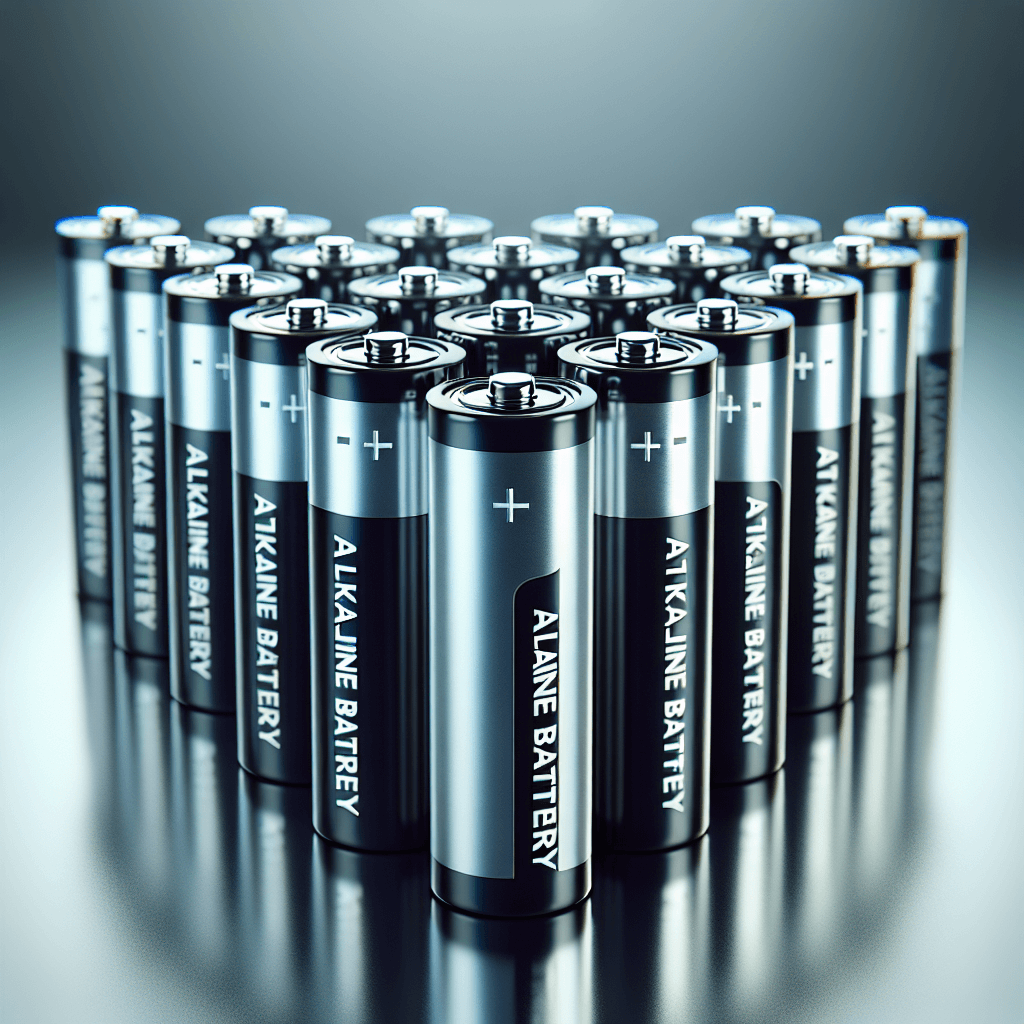 Over the past decade, we’ve experienced an unparalleled surge in the development and utilization of batteries. Among them, lithium-ion batteries have emerged as the preferred choice for various applications, thanks to their high energy density and reliability. From powering electric cars and storing renewable energy to fueling portable electronic devices, these batteries have seamlessly integrated into the fabric of our daily lives.
Over the past decade, we’ve experienced an unparalleled surge in the development and utilization of batteries. Among them, lithium-ion batteries have emerged as the preferred choice for various applications, thanks to their high energy density and reliability. From powering electric cars and storing renewable energy to fueling portable electronic devices, these batteries have seamlessly integrated into the fabric of our daily lives.
As technology continues to advance, the demand for efficient and powerful energy storage solutions has driven the rapid evolution of battery technologies. Lithium-ion batteries, with their ability to store and deliver energy effectively, have played a major role in enabling this progress. The widespread adoption of electric vehicles and the growing emphasis on renewable energy sources have further propelled the prominence of battery technologies in our modern world.
This surge in battery use, while transformative, brings along environmental considerations. As we marvel at the convenience these batteries provide, it becomes imperative to address the ecological impact of their production, use, and disposal. Striking a balance between technological progress and environmental responsibility is key to ensuring a sustainable future powered by innovative and eco-friendly energy solutions.
The Environmental Toll of Raw Material Extraction
Certainly, the undeniable convenience and efficiency of batteries come at an environmental cost during their production. Extracting raw materials like lithium, cobalt, and nickel involves mining operations with severe ecological consequences. Deforestation, habitat destruction, and soil pollution are among the environmental issues directly linked to these mining activities.
Recognizing the ecological impact, the industry is actively seeking solutions. One avenue is the exploration of sustainable mining practices and the identification of alternative materials that are less environmentally disruptive. By prioritizing these eco-friendly alternatives, the aim is to mitigate the negative effects associated with traditional mining processes.
Moreover, recycling initiatives for used batteries are gaining momentum. These initiatives address the challenge of disposal and contribute to reducing the demand for new raw materials. By incorporating recycled materials into battery production, the industry can significantly decrease its reliance on fresh resources, lessening the overall environmental impact of extraction.
Energy Intensive Manufacturing Processes
The production of batteries entails energy-intensive manufacturing processes that contribute to greenhouse gas emissions and climate change. As the demand for batteries continues to escalate, there’s an increasing urgency to adopt cleaner and more sustainable manufacturing practices.
The current trajectory of battery manufacturing emphasizes the imperative need for a shift to environmentally responsible methods. Recognizing the environmental impact of energy-intensive processes, manufacturers are proactively seeking alternatives. One notable trend is the growing investment in renewable energy sources to power production facilities. By harnessing energy from sustainable sources such as solar or wind, manufacturers aim to substantially diminish the carbon footprint associated with battery production.
This transition to cleaner energy aligns with the broader goal of creating a more sustainable and eco-conscious industry. It underscores the industry’s commitment to meeting the rising demand for batteries without compromising the health of our planet.
The Challenge of Battery Disposal
While the advancements in battery technologies are remarkable, one frequently overlooked challenge is the disposal of these energy storage devices. As batteries approach the end of their life cycle, improper disposal practices can result in significant environmental contamination. The presence of toxic elements like lead and cadmium within batteries poses a serious threat to the quality of soil and water.
Addressing this challenge requires a multifaceted approach. First and foremost, there is an urgent need for effective recycling programs that can responsibly handle the diverse materials found in batteries.
The establishment of responsible disposal methods is paramount. Encouraging individuals to utilize designated battery disposal facilities and promoting awareness about the environmental consequences of improper disposal can significantly mitigate the negative impact on our ecosystems.
Fortunately, strides are being made to create comprehensive battery recycling systems. These systems aim to streamline the recycling process, making it more accessible and efficient. By minimizing the environmental footprint of discarded batteries, these initiatives represent a positive step to ensuring that our technological progress doesn’t leave a lasting mark on the health of our planet.
The Promise of Sustainable Alternatives
In the face of the environmental challenges posed by traditional battery technologies, researchers and innovators are proactively delving into sustainable alternatives. The battery development is undergoing a transformative shift, exploring innovative solutions that prioritize performance and reduced environmental impact.
One avenue of exploration is the development of organic and bio-based batteries. By leveraging natural materials and processes, these batteries aim to significantly diminish the ecological footprint associated with traditional battery production. Organic batteries, in particular, show promise in utilizing abundant and renewable resources, offering a more sustainable energy storage solution.
Another frontier in battery innovation involves the investigation of materials like graphene. Known for its remarkable conductivity and strength, graphene holds the potential to revolutionize battery design. Integrating graphene into battery technology could enhance energy storage capabilities, extend battery life, and reduce the reliance on environmentally taxing materials.
These sustainable alternatives address the environmental concerns linked with traditional batteries and open doors to new possibilities. The goal is to create batteries that exceed the performance of their predecessors while embodying eco-friendly principles. As these emerging technologies progress from laboratories to commercial viability, they offer a glimmer of hope for a future where energy storage is synonymous with sustainability.
It’s important to support and invest in these endeavors, fostering a collaborative approach between industries, researchers, and policymakers. By championing sustainable alternatives, we can redefine the narrative of battery technologies, paving the way for a greener, more environmentally conscious future.
Consumer Awareness and Responsibility
One key aspect of consumer responsibility lies in being mindful of our consumption patterns. Choosing energy-efficient devices and prioritizing products with eco-friendly certifications can go a long way in reducing our collective environmental footprint. By supporting manufacturers committed to sustainable practices, we actively contribute to the demand for greener, more environmentally responsible battery technologies.
Participation in battery recycling programs is another impactful step that consumers can take. Rather than discarding used batteries in regular waste, recycling ensures that valuable materials are recovered, reducing the need for new resource extraction and minimizing environmental impact. Many communities now have dedicated collection points for battery recycling, making it easier than ever for consumers to play their part.
Education and awareness are very important for empowering consumers to make informed choices. Staying informed about the environmental impact of different battery technologies, understanding the significance of eco-friendly certifications, and actively seeking out products with sustainable attributes collectively contribute to a more responsible consumer base.
The power to drive positive change in the battery industry lies in the hands of consumers. By adopting a conscientious approach to our choices, we influence the market and contribute to a broader movement to sustainable practices. In this interconnected world, every mindful decision we make as consumers ripples through the supply chain.
Striking the Balance
The environmental impact of battery technologies is a critical consideration in our quest for a more sustainable future. While batteries have undeniably transformed the way we live and interact with technology, we must ensure that this progress does not come at the expense of our planet. Through responsible manufacturing, recycling initiatives, and the development of eco-friendly alternatives, we can strike a delicate balance between technological progress and environmental sustainability. As we look to the future, let’s embrace innovations that power our lives while preserving the health of our planet.

